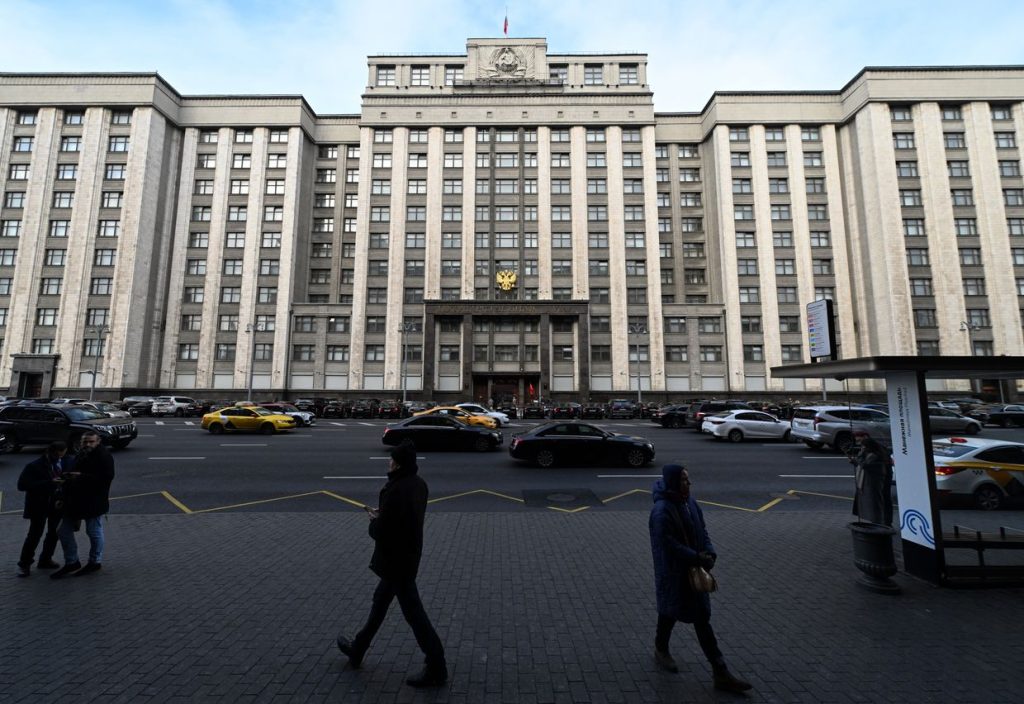A new law passed by the Russian government on May 13 expands the list of “undesirable” organizations to include those funded by foreign states, allowing for potential bans on these organizations. This law, in existence since 2015, has been used to target perceived opponents of Russian President Vladimir Putin’s regime, including NGOs, independent media outlets, human rights groups, and others. Currently, there are 160 organizations classified as “undesirable,” and they are prohibited from operating in Russia, with sharing their content also being illegal. The new legislation aims to target foreign state-funded organizations like the BBC or Radio Free Europe/Radio Liberty (RFE/RL) as well. Lawmaker Vasily Piskarev stated that the bill is intended to combat various activities such as interference in Russian elections and incitement of ethnic hatred. However, agencies of foreign states and organizations that Russia is a member of will not be labeled as “undesirable.”
In February, the Institute for the Study of War (ISW) warned that the new legislation could make it harder for journalists from Russian opposition media based outside the country and foreign outlets with Russian-language services to report on domestic Russian politics as they could be banned from entering the country. The impact of this law extends beyond just organizations, affecting the freedom of the press and access to information. This move could further restrict the flow of independent journalism in Russia and limit the ability of foreign media outlets to provide alternative perspectives on Russian affairs. By targeting foreign state-funded organizations, the Russian government aims to control the narrative and suppress dissenting voices both within the country and internationally. This crackdown on independent media is part of a broader trend of increasing authoritarianism and censorship in Russia under President Putin’s leadership.
Meanwhile, Russia’s military offensive in Kharkiv Oblast, particularly in Vovchansk, has brought the town to the brink of annihilation. The use of glide bombs with significantly more power than regular artillery shells has caused widespread destruction and fear among the local population. The relentless attacks have not only targeted military installations but also civilian areas, resulting in a humanitarian crisis. The escalation of violence in this region is part of Russia’s broader invasion of Ukraine, which has drawn condemnation from the international community and resulted in severe casualties and displacement of civilians. The indiscriminate targeting of civilians and infrastructure violates international humanitarian law and underscores the brutality of the conflict.
As Russia continues its aggressive military campaign in Ukraine, the need for independent journalism to report on the ground realities and provide accurate information becomes increasingly critical. The restrictions on foreign media outlets and state-funded organizations in Russia limit the ability of journalists to cover the conflict from different perspectives and hold the Russian government accountable for its actions. Supporting independent journalism in Ukraine is essential not only to ensure access to unbiased reporting but also to shed light on the human suffering caused by the war. By joining the fight for independent journalism, individuals can contribute to raising awareness, fostering transparency, and advocating for peace and justice in the region. The role of independent journalists in exposing the truth and amplifying the voices of those affected by conflict is crucial in shaping public opinion and mobilizing support for humanitarian assistance.
In a time of crisis and conflict, reliable and independent journalism plays a vital role in providing accurate information, holding power to account, and giving voice to the voiceless. The Russian government’s crackdown on foreign state-funded organizations and independent media outlets reflects a broader trend of restricting freedom of the press and stifling dissent. By supporting independent journalism in Ukraine and other conflict zones, individuals can help counter propaganda, challenge misinformation, and uphold the principles of press freedom and democracy. The power of journalism lies in its ability to uncover hidden truths, expose injustices, and spark meaningful change. Standing with independent journalists and supporting their work is a way to stand up for truth, justice, and the rights of all individuals to access reliable information and diverse perspectives. Joining the fight for independent journalism is not just an act of solidarity but a crucial step towards building a more informed and compassionate society.


